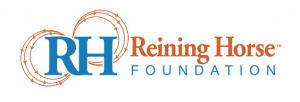As competition resumes, keeping members, show staff, and competitors as safe as possible at National Reining Horse Association–approved events is an important priority.
The NRHA strongly recommends show producers abide by all guidelines in place by local, state, and federal entities when resuming competition. These differ from state to state and country to country and the show management team should understand and abide by all of the recommendations and requirements in place. They should also abide by any additional guidelines set by facilities where shows are held.
The NRHA has created the following list of suggestions for show producers to follow and exhibitors to expect to see in place. This list is subject to change as the situation continues to evolve and local, state, and federal guidelines are updated.
Pre-Show Preparation
- Prepare all show staff and volunteers for new guidelines well in advance of the competition and communicate these policies to exhibitors ahead of the event.
- When possible, hire local show officials to minimize travel.
- Complete entries digitally and in advance and offer digital payment.
- Produce polite, informative signage outlining new expectations.
- Determine if the event discourages public attendance and promote that message as needed.
- Encourage NRHA Professionals to bring only necessary personnel to minimize crowding and contact in barn areas, warm-up arenas, and surrounding the show pen.
Show Office & Staffing Procedures
- All staff and volunteers should take their temperature before reporting to work and are encouraged to wear masks while working.
- Staff and volunteers should practice physical distancing as much as possible; including, but not limited to: carpooling, meals, hotel rooms, workspaces, etc.
- Plexiglass or glass barriers in the show office should be used if possible.
- Show office appointments should be encouraged when possible to reduce the number of people in the office. Additional measures such as only allowing one person in the office per show staff member are also recommended.
- Members are strongly encouraged to have completed all paperwork in advance prior to entering the show office. Forms should be available for pickup outside the office.
- Provide staff, volunteers, and officials with disinfecting wipes, hand sanitizer, masks, etc.
- Provide an ‘in’ door and an ‘out’ door, if possible, in the show office.
- Avoid sharing pens, computers, or any other supplies
- Use digital communication for draws, scratches, announcements, etc.
On the Grounds
- Provide hand-washing/sanitization stations in barns and competition areas.
- Allow the use of face masks.
- Promote social distancing in all areas surrounding the show and post those restrictions in a visible place
- Use your best judgment in determining how many horses/riders can be in any area—including warm-up pens, barn alleys, wash racks, and make-up areas and post that information in an easily-seen location.
- Discourage/prohibit gathering in any one area and promote safe social distancing.
- If possible, provide stalling separation, with maximum space between each group of stalls, along with sanitizing all stalls prior to and after use.
- Ensure that available food services develop ways to eliminate lines and streamline services.
- Clean and sanitize temporary and permanent restrooms often, and ensure that they’re stocked with wipes and hand sanitizer.
- Clean and sanitize frequently touched items such as gates, door handles, railings, etc. throughout the day.
- If possible, encourage drivers to provide adequate spacing between vehicles and trailers in designated parking areas.
For Judges and Scribes
- Provide masks and strongly encourage that all judges and scribes wear them during the show.
- Ask judges to provide their own pens.
- Check each judge’s and scribe’s temperature before leaving the hotel for the show every morning.
- Arrange judges’ and other officials’ areas to comply with social distancing requirements.
- Provide rubber gloves to equipment judges for any unusual circumstance where they may need to touch something.
- Disinfect chairs, radios, pencils, etc. every evening and morning.
At the Show
- Provide viewing and dining areas in line with state and local regulations.
- Post and follow draw orders so exhibitors know when each horse will compete and to minimize traffic at the in gate.
- Email, text, or post online draws, results, and judge’s scoresheets whenever possible.
- Facilitate frequent communications from announcers to ensure that exhibitors are aware of and follow procedures and any new protocol.
- Create a method of giving ribbons/trophies/awards to minimize hand-to-hand contact.
- For win photos, allow only the rider plus one other person—owner, assistant, etc.—to gather in the photos.






